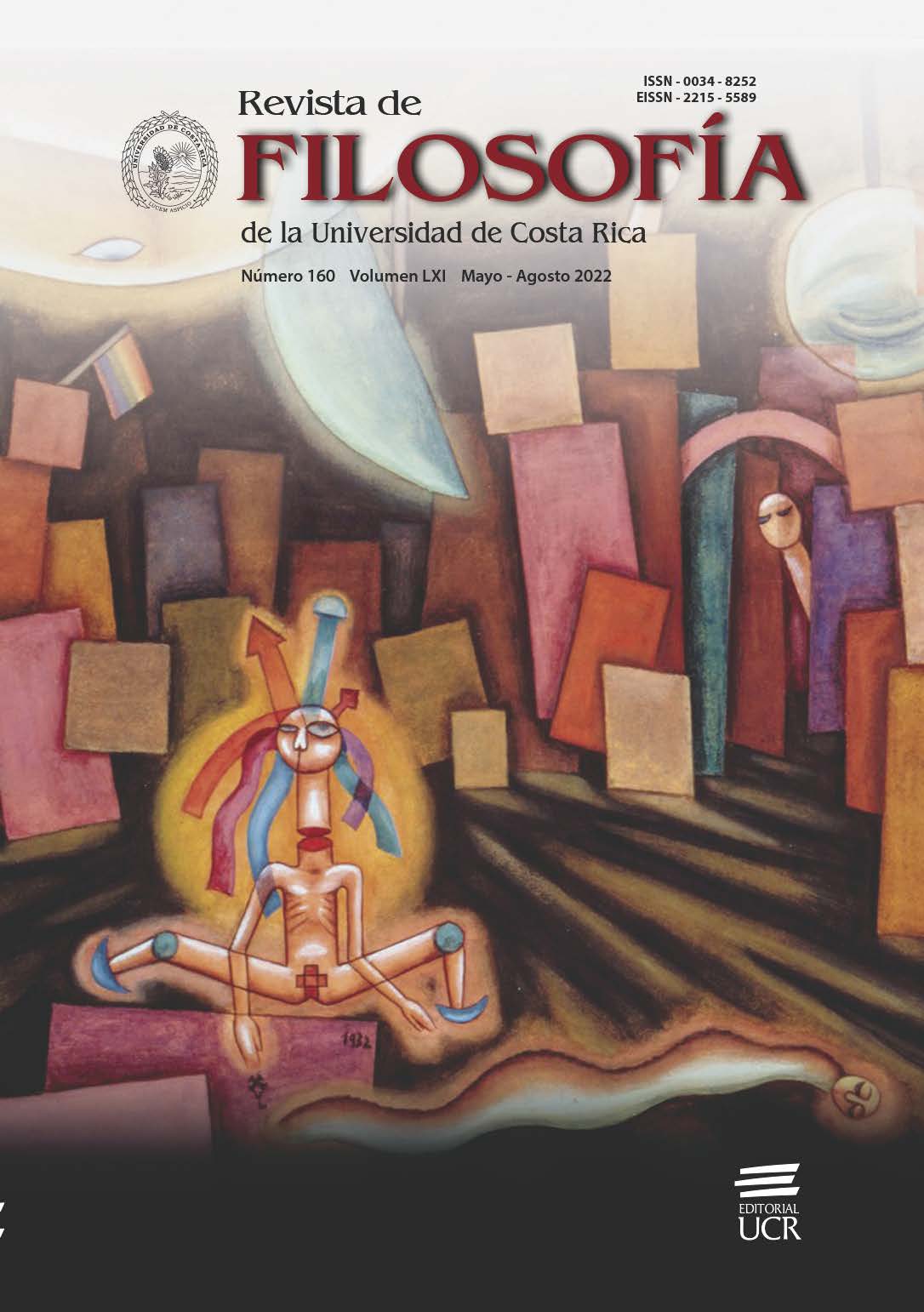Resumen
Reflexiono sobre la humildad intelectual problematizándola desde una perspectiva epistemológica de la virtud y la relación que guarda con la producción y divulgación del conocimiento en la vida académica y científica, y algunas otras complicaciones a las que se enfrenta como la arrogancia, la vanidad y el servilismo intelectual.
Citas
Bibliografía
Baehr, J. (2015) Educating for Intellectual Virtues: Applying Virtue Epistemology to Educational Theory and Practice. London: Routledge, 54-70.
Carter, J. & Pritchard, D. “Intellectual Humility, Knowledge-how, and Disagreement”, en Mi, C., Slote, M. & Sosa, E. (eds.) (2016) Moral and Intellectual Virtues in Western and Chinese Philosophy: The Turn Toward Virtue. Nueva York: Routledge, 49-63. DOI: 10.1111/phpr.12094).
Christensen, D. (2007) “Epistemology of Disagreement: The Good News”, en The Philosophical Review, 116, 187-217.
Church, I. & Barret, J. (2016), “Intellectual Humility”, en Handbook of Humility: Theory, Research, and Application. Nueva York: Routledge, 1-23.
Church, I. y Samuelson, P. (2016) Intellectual Humility: An Introduction to the Philosophy and Science. Nueva York: Bloomsbury Academic.
Elga, A. (2007) “Reflection and Disagreement”, en Noûs 41, 478-502.
Feldman, R. “Reasonable Religious Disagreements”, en Philosophers Without Gods: Meditations on Atheism and the Secular, (ed.) L. Anthony, (2007). Oxford: Oxford University Press, 194-214.
Feldman, R. & Warfield, T. (eds.) (2010) Disagreement. Oxford: Oxford University Press.
Inwagen, P. (2010) Metaphysics, Qruoginia Books. Recuperado el 3 de mayo de 2021 de https://qruoginia.blogspot.com/2010/05/y362ebook-download-pdf-metaphysics-by.html
Kallestrup, J. & Pritchard, D. “From Epistemic Anti-individualism to Intellectual Humility”, en Res Philosophica (special issue on Philosophy and Theology of Intellectual Humility (eds.) J. Greco & E. Stump), (2016) Volume 93, Issue 3, July 533-552. Recuperado el 30 de abril de 2021 de https://doi.org/10.11612/resphil.2016.93.3.2
Kelly, T. (2005) “The Epistemic Significance of Disagreement”, en Oxford Studies in Epistemology 1, 167-96.
Kornblith, H. “Belief in the Face of Controversy”, en Richard Feldman & Ted A. Warfield (eds.), (2010) Disagreement. Oxford: Oxford University Press.
Pritchard, D. (2020) “Educating for Intellectual Humility and Conviction”, en Journal of Philosophy of Education, Vol. 54, No. 2.
Roberts, R. y Wood, J. (2003) Intellectual Virtues: An Essay in Regulative Epistemolgy, Recuperado el 15 de enero de 2021 de file:///C:/Users/Alberto/Downloads/11-Roberts-Chap09.pdf, 232-256. https://DOI:10.1093/acprof:oso/9780199252732.003.0012
Sternberg, R. (1985) “Implicit theories of intelligence, creativity, and wisdom”, en. Journal of Personality and Social Psychology, 49(3), 607–627. doi:10.1037/0022-3514.49.3.607
Tangney, J. (2000) “Humility: Theoretical perspectives, empirical findings and directions for
future research”, en Journal of Social and Clinical Psychology, 19(1), 70-82. DOI:
1521/jscp.2000.19.1.70
Tiberius, V. & Walker, J. (1988) “Arrogance’’, en American Philosophical Quarterly 35, 1998, 379–90.
Wilde, O. (1996) De Profundis, New York: Dover Publications.
Whitcomb, D., Battaly, H., Baehr, J. & Howard-Snyder, D. (2015), “Intellectual Humility: Owning Our Limitations”, en Philosophy and Phenomenological Research. XCIV (3), 509-539. DOI: 10.1111/phpr.12228
Zagzebski, L. (1996) Virtues of the Mind: An Inquiry into the Nature of Virtue and the Ethical
Foundations of Knowledge. Cambridge: Cambridge University Press.
##plugins.facebook.comentarios##

Esta obra está bajo una licencia internacional Creative Commons Reconocimiento-NoComercial-SinObraDerivada 3.0.
Derechos de autor 2022 Revista de Filosofía de la Universidad de Costa Rica

